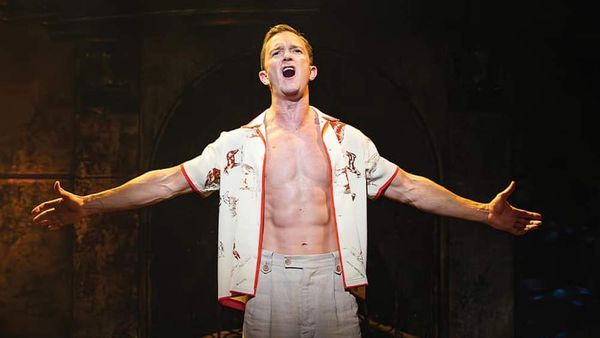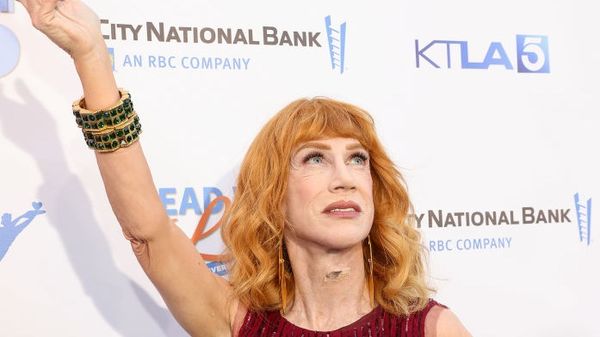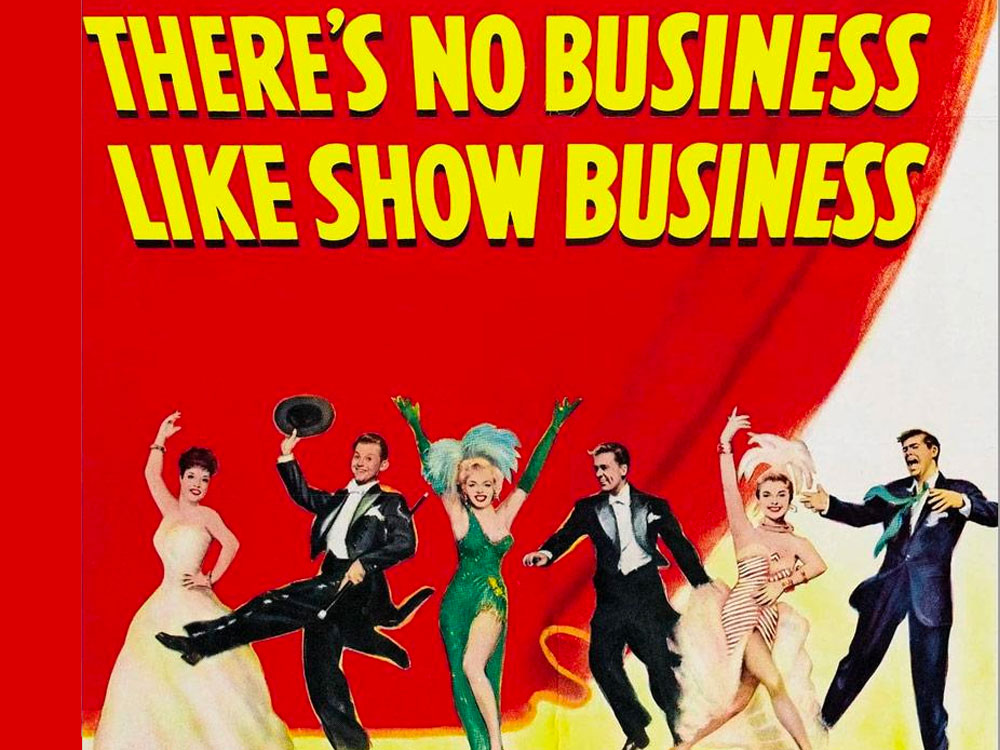
August 29, 2022
Queering Cinema: 'There's No Business Like Show Business'
Robert Nesti READ TIME: 8 MIN.
Editor's note: "There's No Business Like Show Business" airs on TCM on Saturday, January, 7 at 12pm.
In the 1950s, gay Hollywood actors were terrified by Confidential Magazine, the tabloid that had no problem outing them and vilifying them in lurid fashion. In 1954 such was the fate of two of the stars of "There's No Business Like Show Business" – Dan Dailey and Johnnie Ray. Dailey was revealed to be a cross-dressing bisexual and Ray as having been arrested on moral charges involving solicitation just as his successful singing career was taking off.
For Dailey, the revelation came in 1957 when Confidential ran a story that he was a not-so-closeted drag queen. Called "The Night Dan Dailey was Dolly Dawn," it claimed that he had danced in a pink tulle dress in a New York gay bar the previous March. The story would mark the beginning of the end of his career. Ray was constant fodder for the tabloid, which may have contributed to his not being asked to make another film in for a major Hollywood studio. His singing career thrived until the late 1950s, then revived some in the 1970s when he became more a cabaret performer.
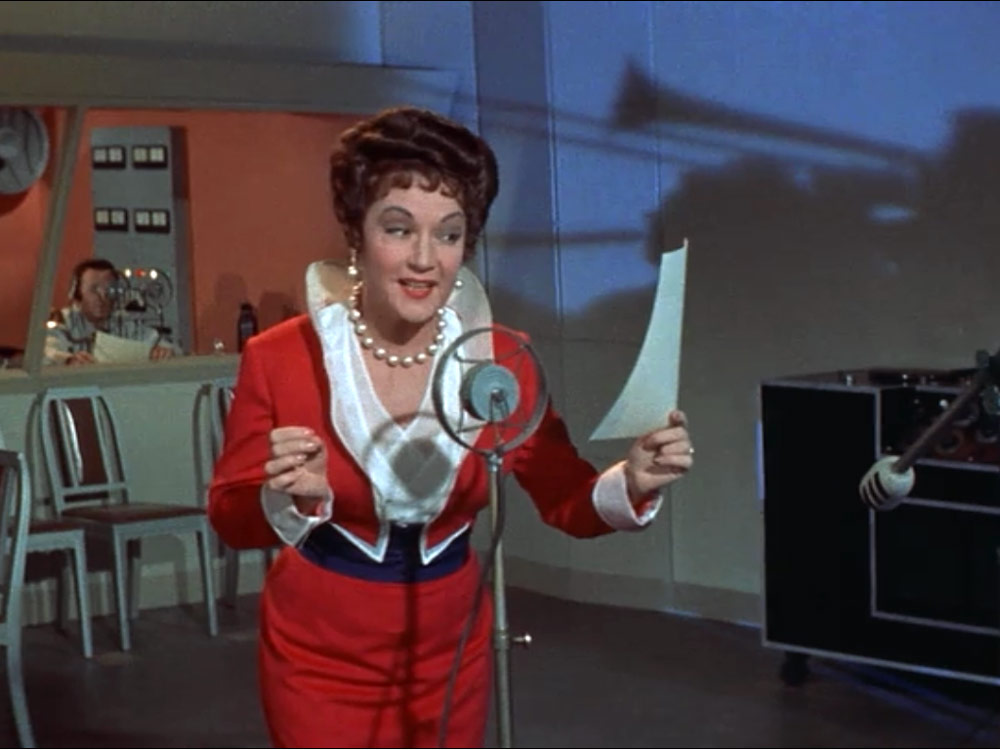
In the splashy, 20th Century Fox show business saga – something of a retread of an earlier Betty Grable film – Dailey and Ray played father-and-son who argue when Ray decides to quit the family's successful act and become a priest. That is one of the many cliches in this epic mishmash designed to highlight songs by Irving Berlin, a formula that had worked well in "Holiday Inn" and "Easter Parade," and would do so again with "White Christmas," which opened just weeks before "TNBLSB." (Perhaps it was too much Berlin for the public to take – "White Christmas"grossed $30M; "TNBLSB" grossed 5.1M.)
The script, by the husband and wife team Phoebe and Henry Ephron, follows the saga of the Donahue clan, led by Terence (Dailey) and Molly (Ethel Merman) in 1920s and 1930s. They soon have three children - Stevie (Johnnie Ray), Katy (Mitzi Gaynor), and Tim (Donald O'Connor) – who grow up and join the act, headlining at the Hippodrome, one of New York's largest theaters torn down in 1939. But when developing the film, executives at Fox thought the cast needed a larger box office draw, especially since the film adaptation of Berlin's hit "Call Me Madam" with Merman, (featuring O'Connor and directed by Walter Lang, who was also hired to do "TNBLSB") had recently bombed at the box office. To bolster the film, Fox reached out to its suspended contract player Marilyn Monroe to play as an ambitious Broadway wannabe involved with O'Connor. At first, Monroe was reluctant, but when promised "The Seven Year Itch," she took the role.
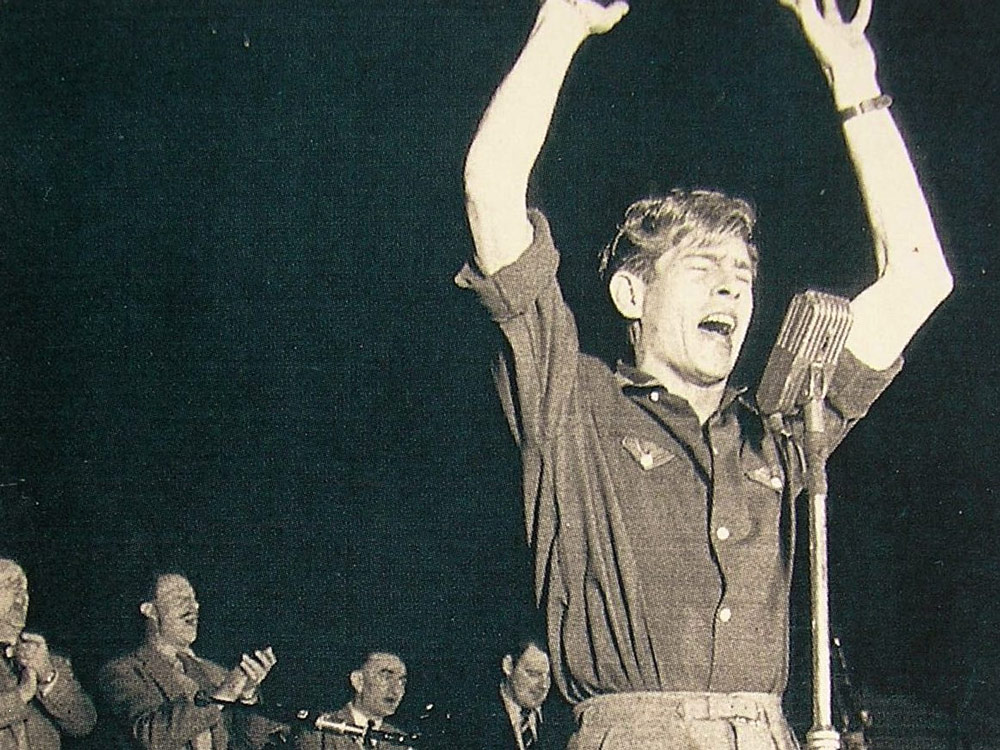
If only for Merman and Monroe appearing in a film together "TNBLSB" is guaranteed its queer cred. (Not surprisingly, they didn't gel on the set.) Merman had been the first lady of Broadway (and a gay icon) for a quarter century, but success in Hollywood alluded her. Likely her oversized personality was too big for the screen – even in her most tender moments, she came off like a prison matron – and she made but a few films. Nor does she help her cause here, bulldozing through her performance as a vaudeville star and mother that is both garish and camp. People often wonder what the film "Gypsy" would have been like if Merman had been able to repeat her acclaimed stage performance instead of Rosalind Russell, who got the film role. Judging from "TNBLSB," it would have been close to disaster.
On the other hand, Monroe's star was on the ascent. She was credited with making both "How to Marry a Millionaire" and "Gentlemen Prefer Blondes" huge hits, and audiences were craving her. While it was a supporting role, Monroe is sensational in her three numbers, which include the iconic "Heat Wave" where her sultry delivery abetted by Jack Cole's choreography is one of the film's true camp highs. (Though the brown-faced dancers add a peculiar, dated touch.)
But aside from the gay appeal of its cast, what makes "TNBLSB" such a queer film is the way the narrative involving Stevie reflected a cultural meme of the first half of the 20th century found in Roman Catholic households. in which a son chooses the priesthood, most notably in Irish and Italian families. Often the son was gay and the priesthood was an escape in many cases from their closeted homosexuality.
That is the subtext to the story meme involving Stevie and his parents when he announces he's going to become a priest. Early on, he is described as "quite an unusual boy" by a priest at a private school he attends. In one scene he visits his parents in their dressing room after a show to tell them he wouldn't be dining with them. "Got a date?" Asks his father. "No, No. It is such a beautiful night I just felt like walking. I've got some thinking to do."
Upon leaving, Merman wonders if something bothering her son. "He seems so far away these days, and he's not always with you. Kinda like a poet or something."
A short time later he announces his plans to become a priest, to which Dailey responds with some anger. Intended or not, the moment is more like the reaction of a not-so-sympathetic father responding to his son coming out, and in his reply implied that choosing the Church was the refuge for the a less masculine, hence effeminate man, such as Stevie. "The only cardinal I want in this family is one who plays for Saint Louis," he shouts.
But the film's most telling scene has Merman speaking to Ray about his decision. "Life is funny," she tells him. "You raise a kid backstage. You teach him every trick you know about singing and dancing and how to make people laugh. And then one day this. Why? How come?" (Her voice breaks.)
Ray responds: "I don't know, Ma. It's inside me. It must have always been there."
"It's like losing you, Steve," she says fighting back tears. "I know not really, but..."
He then asks her if she's disappointed.
"No. I am not disappointed. I think it's a wonderful thing. I am not just use to it yet. But I'm proud. Very proud."
But her weeping on her son's shoulders suggests she's not quite a charter member of PFLAG, circa 1954, quite yet.
In some ways the subplot appears designed as a way to neutralize Ray, whose effeminate manner came across strongly on screen. But the film does capture his over-the-top style, in which pop met gospel in a white bread fashion; but his performance style didn't film well. Pauline Kael said he "sings like a rutting cat." Bosley Crowther in the New York Times wrote: "Embarrassing, too, is the build-up of Mr. Ray's becoming a priest, which he explains as "a change of booking." Says he: 'You've got to admit, the Church has had a mighty long run.' And when he wails an evangelistic number, 'If You Believe,' which contains the horrendous line 'I'm making no promises to the doubting Thomases,' your flesh is likely to crawl."
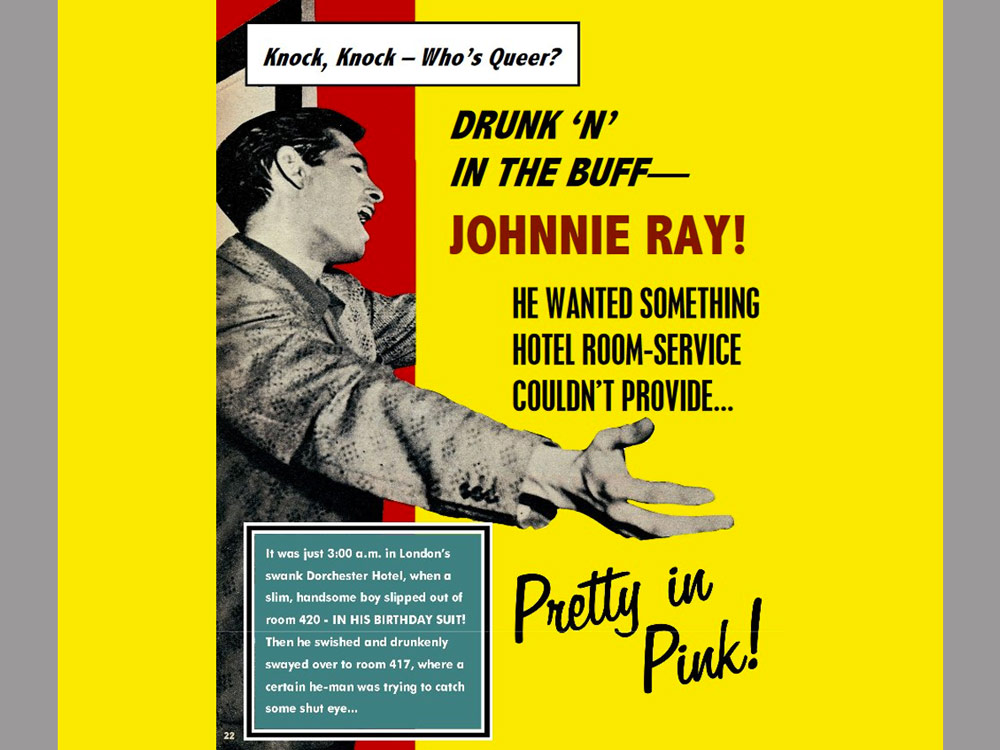
It is an odd testament to a talent who was one of the music's biggest pop stars in the early 1950s after his smash recording of "Cry" in 1951. But his career was mitigated by those moral charges after news of his being arrested in a Detroit men's room in 1951 went public. Issues with his sexuality and substance abuse would plague him for the rest of his life. Ray married a woman, who promised she would "straighten him out," but the marriage failed. He would be arrested again for soliciting an officer at another Detroit club in 1959. But at the same time, began an affair with Broadway gossip columnist Dorothy Kilgallen, with whom he had a son. It wasn't until after his death did his friends verify that he was bisexual to his biographer Jonny Whiteside.
In the film, Ray is over-the-top in his musical performances and amateurish in his dramatic ones. If there's a comparable performance from the period, look to Liberace in "Sincerely Yours," another attempt at making a musical star into a film one that failed. Ray's career was sabotaged not only by his lack of acting ability, but his apparently appearing queer in a time when such behavior was forbidden on American screens.
But Ray was more than a one-note crooner. His flamboyant style looked forward to Elvis, as well as his effect on his huge teenage audience, mostly made up of women. No less than Tony Bennett said: "Johnnie Ray was completely different from anything that went before him. . . . I consider Johnnie Ray to be the father of rock and roll."
"There's No Business Like Show Business" can be watched on YouTube at this link.
It is also available on Turner Classic Movies On Demand through September 1, 2022.
Robert Nesti can be reached at [email protected].


